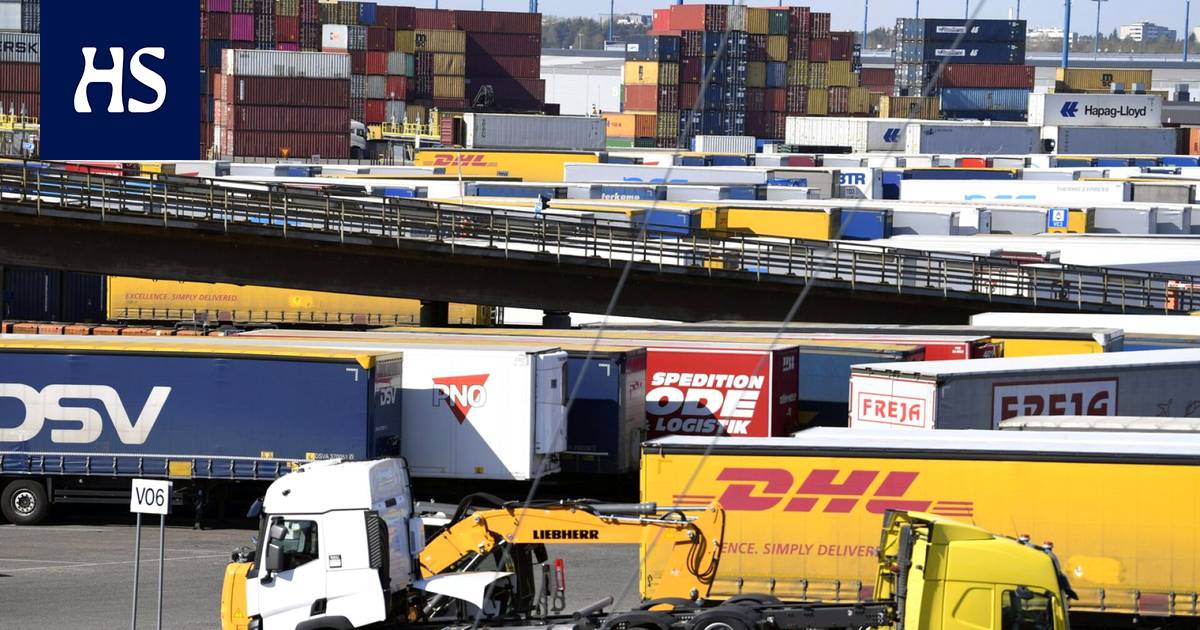The support is due to be announced on Friday. No agreement has been reached on the abolition of the distribution obligation.
Government tens of millions of euros in aid to the transport sector are due to be announced on Friday.
The reason for the subsidy is the rise in fuel prices, which has plagued many entrepreneurs. The taxable price of diesel has risen slightly from around 1.50 euros last summer to well over two euros.
According to a recent survey by the transport and logistics industry association Skal, about 90 percent of transport companies believe that rising fuel prices threaten the company’s future.
Read more: Gasoline already costs two euros a liter, and diesel has risen sharply – Who will reap the benefits of rising prices?
The final there are no decisions yet.
They are to be made by the Minister of Finance Annika Saarikon (Central) chaired a ministerial working group on preparedness on Friday.
HS: n according to information, in the negotiations held before the ministerial meeting, a preliminary agreement has been reached to provide cost support to the transport sector of at least tens of millions of euros. One amount on display is around € 75 million.
The aid would be distributed on application and would probably be based on actual fuel costs.
The EUR 75 million presented for the transport sector is hardly enough, as according to HS, the transport sector believes that the share of cost support should be well over EUR 100 million.
Transport sector and also at least the center has demanded that the so-called distribution obligation be abolished for a limited period until the end of the year.
Read more: Saarikko: Decisions on the “necessary assessment” of the distribution obligation for biofuels have not yet been made
A distribution obligation refers to an order placed on distributors of transport fuels to sell an agreed amount of renewable fuel to consumers each year.
The purpose of the distribution obligation is to promote the use of sustainable renewable fuels in transport.
In Finland, the distribution obligation is 19.5 per cent, and it is rising every year to 21 per cent this year and 30 per cent in 2029 and beyond.
Distribution obligation a temporary drop would lower fuel prices.
The explanations received by the government do not agree on the magnitude of the impact. According to one calculation, a decrease of 10 percentage points in the obligation will reduce the price of fuel by 10 cents.
The distribution obligation plays a key role in the government’s efforts to reduce emissions.
The distribution obligation is controversial, as it is difficult for the Greens and the Left Alliance to accept a reduction in the distribution obligation, even for a limited period. The parties do not believe that the obligation can be lifted back so that no new emission reductions should be found somewhere.
From a contractual point of view, the distribution obligation cannot be completely eliminated.
Downtown the worries are futile.
According to Thursday’s data, the abolition of the distribution obligation is not part of the support package for the transport sector, but it may be included in any future support packages.
Lobbying in the transport sector is described as very strong and widespread.
The transportation industry has put forward a large list of different ways in which fuel prices could be reduced, but some of them are quite expensive for the state.
#Fuels #data #transport #sector #receiving #tens #millions #euros #aid

/https://content.production.cdn.art19.com/images/73/08/d7/63/7308d763-42d3-4c06-89aa-f25a1eb886a9/08f4d96a249522638b7a5b30defa992a000fef395af04983c58078b0faed8a)







